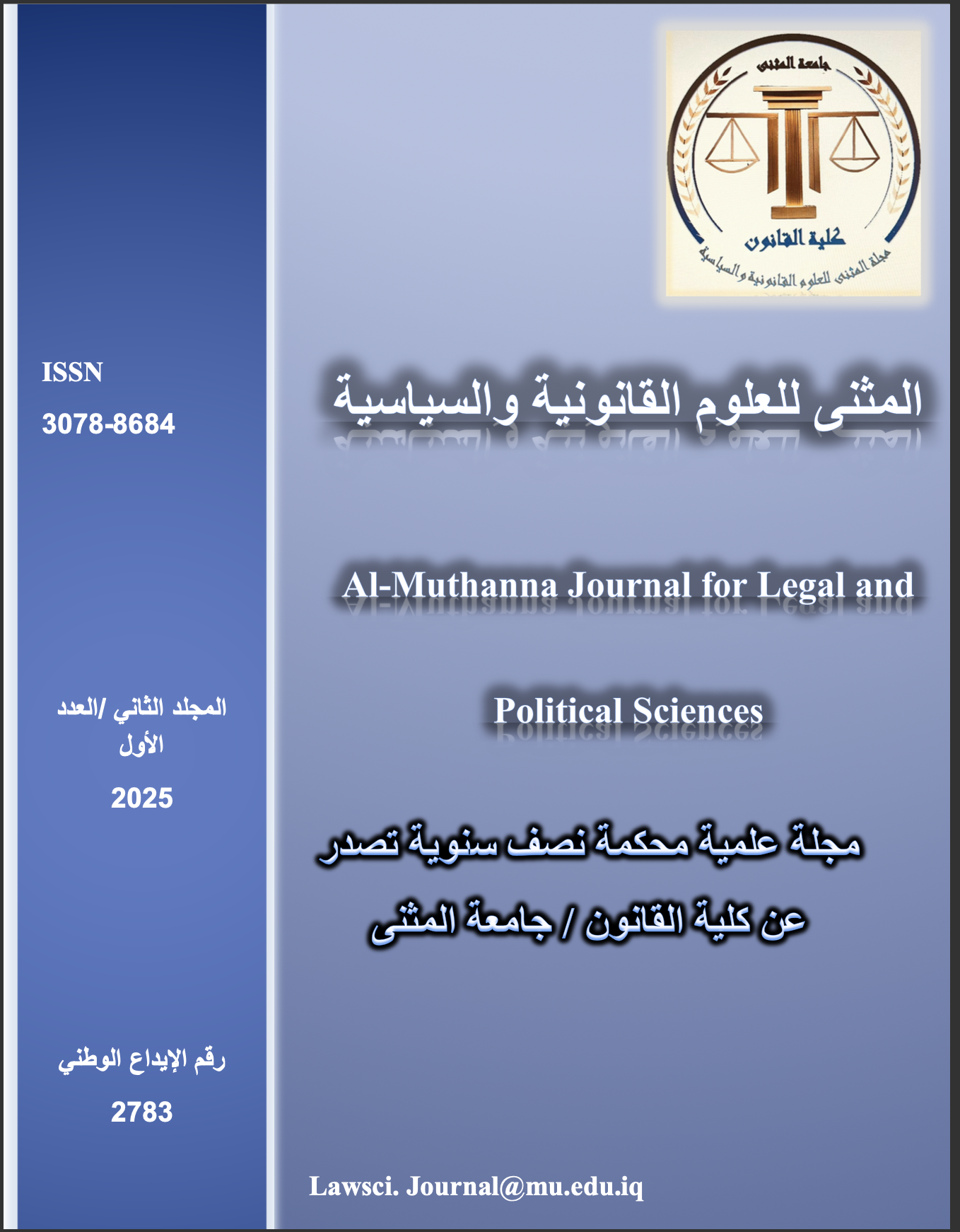Judicial oversight of constitutional texts on criminal immunity
DOI:
https://doi.org/10.52113/08-781Keywords:
الدستور - الرقابة القضائية – المحكمة الاتحادية العليا – الحصانة الجنائية.Abstract
It is no secret that the political system in Iraq, which has adopted a centralized approach to governance since the founding of the Iraqi state and since the adoption of the first Iraqi constitution in 1925 (the Iraqi Basic Law) until the end of the Interim Constitution of 1970, after the fall of the then-current regime in 2003, has established a court called the Federal Supreme Court, tasked with overseeing the constitutionality of laws and adjudicating disputes between parties within the federal government, under Order No. (30) of 2005 (the Federal Supreme Court Law). Turning to criminal immunity from a constitutional source, it refers to the legal rules related to immunity of a criminal nature, which are included in one of the constitutional provisions. These rules pertain to persons who are granted immunity based on their possession of certain characteristics. And because the most prominent area of the constitution is the political organization of the state, that is, it deals with the formation of the legislative authority, its jurisdiction and its relationship with the executive and judicial authorities, and this is the area in which we can find the rules that govern criminal immunity, our research is concerned with the judicial oversight of the constitutional rules that determine the provisions of criminal immunity.
Downloads
Published
Issue
Section
License
Copyright (c) 2025 أ.د. عقيل عزيز عودة ، علي شبرم علوان (مؤلف)

This work is licensed under a Creative Commons Attribution 4.0 International License.



